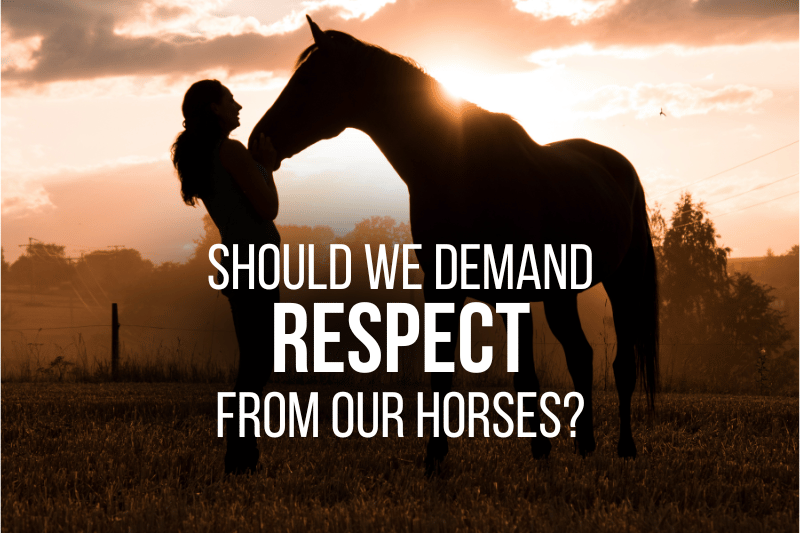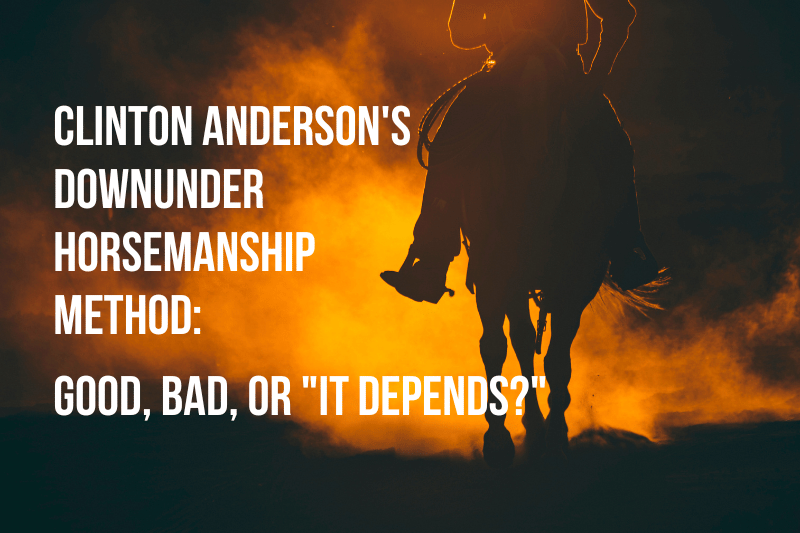The word “respect” sure comes up a lot when you start taking about problems with horses, and not everyone is comfortable with it.
Can a horse respect or disrespect her handler?
A social media post written by Kathleen Beckham of Ethos Equine questions whether horses are even capable of experiencing the complex, contemptuous emotion that we humans label “disrespect.” She observes that horses act either out of instinct or training, including inadvertent training. The sense we get of the horse being disrespectful is actually a reflection of how we feel, not how the horse feels.
Some people have very negative feelings about the word “respect” as it pertains to horses. Personally, I’m not allergic to the idea. I think the problem is not so much the word itself as how it can influence our attitudes and behaviors.
“Disrespect” in the human world has a moral overlay. It’s considered bad or sinful, and therefore deserving of punishment. If we say a horse is “disrespectful,” our tendency may be to attack the problem with an aggressive, whip-into-shape mindset.
What if, instead, we addressed (vs. attacked) the behavior (vs. problem) with a confident (vs. aggressive), teaching (vs. disciplinary) mindset?
Beckham writes, “I choose to replace the word ‘disrespectful’ with the word ‘disregard’ if I have to use a word for it. Many, many, many horses have found humans to be inconsistent, confusing, emotionally incongruent and unhelpful in critical ways, so they develop a ‘disregard’ for the human. In other words, the human is so difficult to make sense of that the horse simply dismisses them. If pushed, this horse will cycle through flight (try to get away), fight (kicking, biting, striking, pushing) and freeze (locking up).”
As trainer in my area, Dana Lovell, says, “Your horse isn’t giving you a hard time; he’s having a hard time.”
I re-read Beckham’s words early this morning, having just gotten out of bed with my mare Bella on my mind. She’s been a little balky lately and I wanted to show up for our daily training session with clarity rather than frustration.
Beckham advises labeling the horse in terms of “comfortable” or “uncomfortable,” rather than assigning more complex emotions that are more likely to be our own.
Framed that way, I can describe Bella as uncomfortable moving out with more energy, rather than having sticky feet or being resistant. Hmm.
Whatever you want to call it, you still have to figure out what to do about it.
I don’t want to swerve into the camp that views horses through a hyper-empathic lens and never actually makes progress because they’re afraid to trod upon the horse’s sovereignty as a living being. That lens, like the “disrespect” one, skews anthropomorphic.
In her podcast episode #47 on Locking and Unlocking Traits in Your Horse, Stacy Westfall says, “I think a lot of times people are afraid of intimidating the horse or patterning the horse, and…they don’t allow that horse to learn that respectful foundation of following simple directions without complaining.”
So there’s a balance, right?
In Bella’s case, I believe swift departures and energetic gaits instead of sluggishness and crowhops is a fair, simple expectation. Fine. My job is to help her to be comfortable giving that swift, energetic answer to my cue.
I don’t think the mechanics of our training session — that is, what we actually did — change depending on the word I use to describe Bella’s behavior (disrespect, discomfort, disregard, resistance, whatever).
However, I do think the attitude with which I approach a session benefits from giving the words some thought. It helps me arrive as a teacher, not a dictator.
I can respect that.




